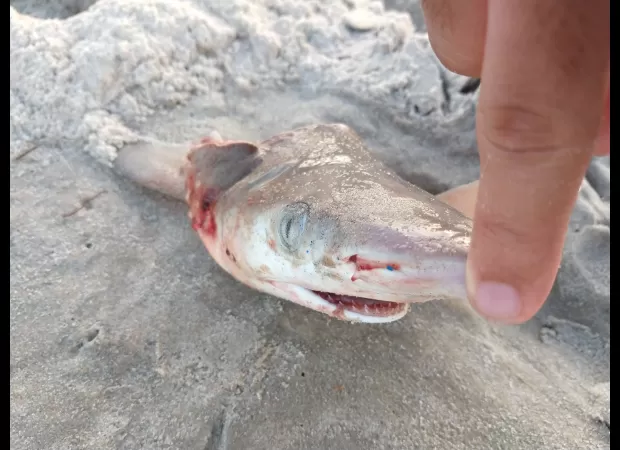Sharks are affected by cocaine when drugs are discarded in the toilet.
It may influence their actions and cause increased aggression.

The ocean is not only a home to various marine creatures, but it seems like it has also become a dumping ground for human waste. Recently, scientists have discovered that Brazilian sharpnose sharks, a common predator in the region, have been exposed to high levels of cocaine. This shocking discovery was made after the researchers tested 13 sharks captured in Brazilian waters.
According to the study titled "Cocaine Shark," the sharks were found to have high levels of cocaine and its main metabolite, benzoylecgonine, in their muscles and livers. In some cases, the levels were as much as 100 times higher than ever previously recorded. The researchers believe that the sharks are being exposed to the drug through pollution, although they are not sure about the exact source.
One possible way the sharks are ingesting cocaine is through waste water. It is believed that sewage containing human urine and faeces, which contains traces of the drug, is flowing into the ocean. Another possible cause could be the drainage from illegal drug labs. However, it is unlikely that the sharks are directly consuming bales of cocaine that are lost or dumped in the sea, as this is not a common occurrence in Brazil.
The study focused on Brazilian sharpnose sharks because they spend their lives in coastal waters and are most likely to be affected by pollution. This issue of "cocaine sharks" has gained attention in recent years, even being the subject of a Discovery TV programme that looked into how these creatures consume bales of the drug dumped by smugglers. In fact, a horror film in 2023 was titled "Cocaine Shark" after the success of "Cocaine Bear," but it was not well received by viewers.
The researchers also expressed concerns about the negative impact of cocaine consumption on the sharks' health. High levels of the drug could harm their eyesight, making it difficult for them to hunt. Dr. Tracy Fanara, an ecotoxicity expert, explained that cocaine could also affect the sharks' behavior, potentially making them more aggressive or causing feeding frenzies. However, more research is needed to fully understand the consequences of this unintentional drug consumption on the sharks' well-being.
In conclusion, it is alarming to see that human activities are not only polluting the oceans but also affecting the marine life living in it. The "cocaine sharks" are just one example of the detrimental impact of human waste on the environment. It is important for us to be aware of our actions and their consequences, not just for our own sake, but also for the well-being of other species that call the ocean their home.






